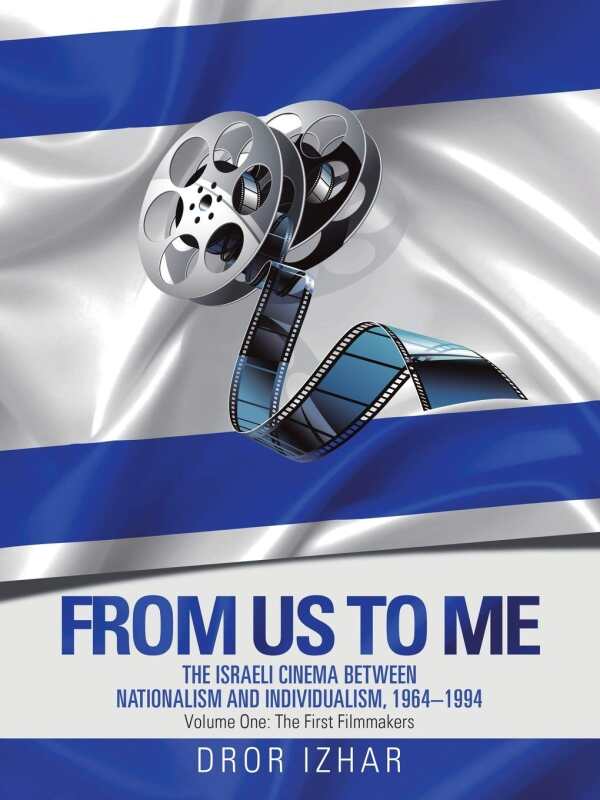From Us to Me
The Israeli Cinema between Nationalism and Individualism, 1964-1994
From Us to Me is a strong case study of Israeli films and their use in representing and shifting national identities.
Dror Izhar’s From Us to Me is a fascinating look at Israeli cinema and its role in both creating and mirroring national identity trends from the 1950s through the 1970s.
Approaching Israeli films and directors from both a sociopolitical and cultural lens, From Us to Me is divided into four chapters, each exploring roughly a decade of Israeli cinema. Izhar’s introduction grounds the work in cinema studies and social/political theory, providing a strong lexicon from which to approach his book.
From Us to Me uses Israel as a case study for the relationship between cinema and the creation and evolution of a national identity or narrative. Izhar notes that the rise of political Zionism, and the beginnings of the argument for a state of Israel, coincided in the late 1800s with the invention of film as a form of expression. The text follows the path of Israeli national identity from its founding, namely an “us”-centered identity of collectivism to a “me”-centered individualism stemming from fractures in class, ethnicity, and religious identity, as it relates to their presentations in film.
Each chapter focuses on a limited selection of films or directors that are both indicative of their decades and that exemplify the shifting narrative in Israeli national identity. Izhar’s first chapter maps historical and academic perspectives of Israel in the 1950s and 1960s before examining its case studies. The first film analyzed, They Were Ten, presents Israelis as pioneers, with the world’s Jews coming to a barren Palestine and making the “deserts bloom;” the tensions that arise between Israelis and Arab Palestinians are shown. The film revolves around the fast-changing national story of Israel, and the conflicts and wars to come versus the social utopia of Israel’s founding.
Ten is compared to two other films, Such a Gang and Holot Lohatim/Burning Sands, to present the beginnings of the shift in Israeli film away from an “us” mentality toward a “me” mentality, namely by showing the divisions between Israeli Jews themselves: Eastern European versus Arab and Spanish Jews, and “Old World” versus modern Israeli identities.
Subsequent chapters follow a similar structure of historical contextualization and close film analyses, showing the class and ethnic tensions that arose from the film industry in Israel. With much of the early production of film facilitated by Jews of European ancestry, the non-European Jewish population is shown to have been marginalized in the industry. Izhar’s analysis of Sallah Shabatti focuses on the beginnings of the rejection of the early Israeli collectivist “kibbutzim” identity in favor of focus on individuals, and the 1967 Arab-Israeli War is held up as the lynchpin for the shift from “us” to “me” national identities.
Izhar’s book is thorough in analyzing cinema and in complementing these analyses with political, historical, and social context, capturing Israel during the periods highlighted. The limited contributions of Arab Israelis and Palestinians, and certain forms of religious films, are acknowledged.
From Us to Me is a strong case study of Israeli films and their use in representing and shifting national identities.
Reviewed by
Holly Jordan
Disclosure: This article is not an endorsement, but a review. The publisher of this book provided free copies of the book and paid a small fee to have their book reviewed by a professional reviewer. Foreword Reviews and Clarion Reviews make no guarantee that the publisher will receive a positive review. Foreword Magazine, Inc. is disclosing this in accordance with the Federal Trade Commission’s 16 CFR, Part 255.

